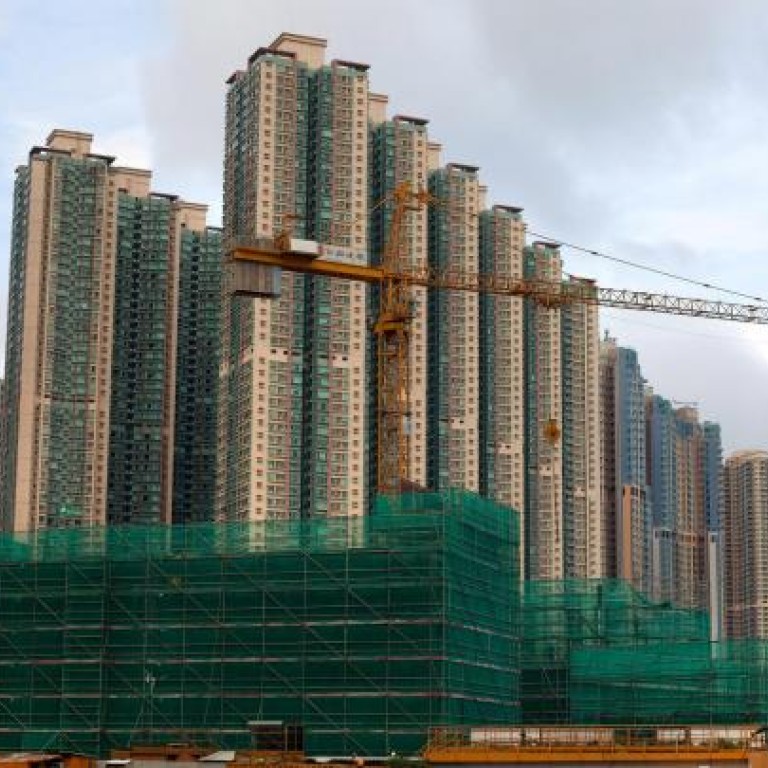
Housing medicine not curing the problem
While the government has announced steps to ease housing shortages in the medium term, they are unlikely to cool prices in the near term
Hong Kong's housing sector seems to have developed a resistance to any medicine prescribed by the government.
Take the special stamp duty, for example. This punitive short-term trading tax was deemed to be a game changer. However, home prices have risen more than 20 per cent since its introduction.
Meanwhile, the government has prescribed a series of additional medicines, such as an increase in land supply, the removal of real estate from the list of permissible investment assets for the capital investment entrant scheme, the resumption of subsidised housing provision under the Home Ownership Scheme (HOS) and the exemption of premiums on resales of HOS flats to "sandwich class" families.
In addition, the Hong Kong Monetary Authority (HKMA) lowered mortgage loan ceilings a number of times.
But none of these measures has worked to curb rising prices, and with orthodox treatments failing the government is trying something unconventional: "Hong Kong property for Hong Kong residents only."
That may limit the choices available to mainlanders. But it does nothing to restrict their buying power, and hence this new initiative is not expected to work either in slowing down the market's growth momentum.
In our view, however, the market fever is not incurable. To start, we need to diagnose the problem more accurately.
First, as evidenced by the insignificant number of confirmor-transactions (in which a buyer resells the property to a sub-purchaser before the legal completion of the original sale), short-term speculators are not the major drivers of price rises. Rather, there are signs that genuine demand for properties is strong.
There are a lot of ways for mainlanders to secure local residency, including the capital investment entrant scheme, the admission scheme for "mainland talents and professionals" and immigration arrangements for non-local graduates. Over the five-year period from 2007 to 2011, about 22,000 mainlanders gained approval to stay in Hong Kong through these programmes.
Also, the number of mainlanders admitted to local universities has increased substantially. In the 2011-2012 school year, there were 4,600 mainland undergraduates studying in the six major local universities, up 54 per cent from 2006-2007. The swelling ranks of mainlanders living or studying in the city has translated into a big increase in demand for properties. As a result prices have risen and rents have soared - growing 12 per cent year-to-date, compared with a 13 per cent increase in home prices.
Clearly, the government is well aware that restriction on the foreign ownership of local properties is a poisonous pill, as it may undermine Hong Kong's status as a free market.
To deal with the end-users' needs, the government has made a big stride forward. Housing supply is increasing and 65,000 new homes will be available in the next three to four years. Moreover, the resumption of the HOS will help fulfil the demand from the sandwich class families. The orthodox treatment of building more homes, however, is not enough to cool the market for the time being, as the short-term supply is inadequate. And the launch by the US Federal Reserve of a third round of quantitative easing is making property prices even harder to contain.
Undoubtedly, the HKMA responded promptly to this. The lowering of maximum loan-to-value and debt-serving ratios can ensure the healthiness of the banking system. However, the new measures may not be sufficient to stop prices rising, since low interest rates have encouraged cash-rich Hong Kong people to turn to property as a safe investment bet.
The silver bullet to absorb the tonnes of cash flowing into the housing market is still to increase housing supply. The number of private and HOS flats in the pipeline may be enough to deal with the demand for three to four years. But as mentioned before, they cannot cool down the market in the near term.
To shorten the time for the supply measures to take effect, policymakers could lengthen the pre-sale period from 20 months to 25 months. This could boost home supply immediately and help absorb excessive liquidity.
In tandem, the government could put more sites on the market for sale. As long as developers realise they can replenish their land banks easily, they have the incentive to speed up the pace of new launches.
Property prices will not stop rising as soon as these measures are in place. But we need to know that effective medicine may not be an immediate cure.
A sick person cannot expect to get better after taking the first pill. Perhaps all we need is time.

